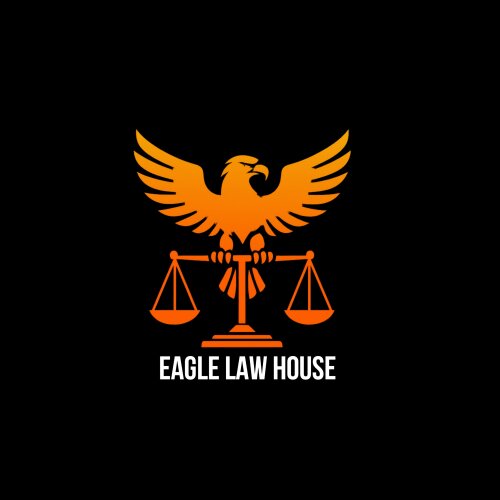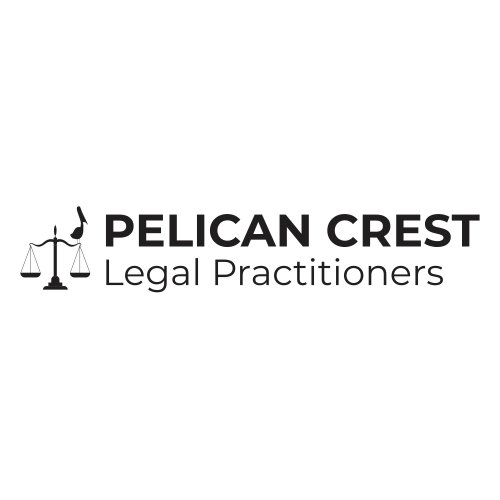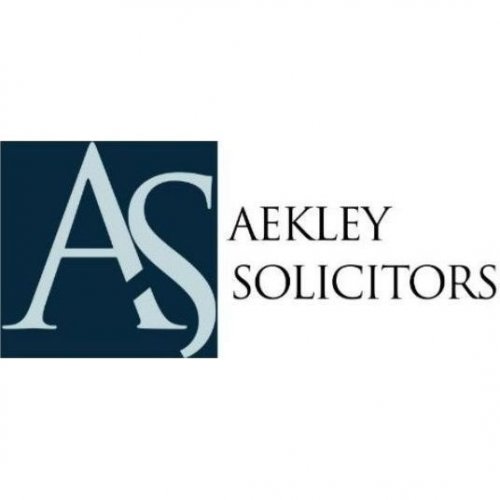Best Corporate & Commercial Lawyers in Nigeria
Share your needs with us, get contacted by law firms.
Free. Takes 2 min.
Or refine your search by selecting a city:
List of the best lawyers in Nigeria
Legal guides written by Adeola Oyinlade & Co:
- Procedure and Requirements for Work Permit and Visas in Nigeria
- The Step-By-Step Procedure of How to Apply for Microfinance Bank License Online in Nigeria
- How to Ensure the Smooth Recognition and Enforcement of Foreign Judgments in Nigeria
Nigeria Corporate & Commercial Legal Questions answered by Lawyers
Browse our 1 legal question about Corporate & Commercial in Nigeria and read the lawyer answers, or ask your own questions for free.
- I’m planing to start a tech startup company in Nigerian
- What type of company am I to register and what’re the legal requirements and steps.
-
Lawyer answer by CO-dunni Law Solicitors
You would need to call us directly for a telephone consultation for us to be able to advice you accordingly. You usually would need to register first with corporate affairs commission, Federal Inland revenue service and obtain license from Central...
Read full answer
About Corporate & Commercial Law in Nigeria
Corporate and Commercial law in Nigeria encompasses the legal framework that governs the formation, operation, regulation, and dissolution of companies, as well as commercial transactions between businesses and individuals. This field covers company registration, mergers and acquisitions, contract law, competition law, foreign investment, intellectual property, and compliance with regulatory authorities. Nigeria's dynamic economic environment makes this area of law vital for businesses and entrepreneurs seeking to operate locally or expand internationally.
Why You May Need a Lawyer
Hiring a lawyer who specializes in Corporate and Commercial law can make a substantial difference in navigating Nigeria's complex legal landscape. Here are some common situations where legal assistance is necessary:
- Incorporating a new company or registering a business in Nigeria
- Drafting and reviewing commercial contracts and agreements
- Mergers, acquisitions, or restructuring of businesses
- Securing financing and handling banking agreements
- Resolving disputes among business partners or shareholders
- Ensuring compliance with regulatory bodies such as CAC, SEC, or NIPC
- Protecting intellectual property and trade secrets
- Complying with tax obligations and corporate governance standards
- Dealing with insolvency or liquidation matters
- Navigating foreign investment regulations or cross-border transactions
Local Laws Overview
Nigerian Corporate and Commercial law is shaped by several key statutes and regulations:
- Companies and Allied Matters Act (CAMA) 2020: This is the primary statute governing the formation, administration, and liquidation of companies, business names, and incorporated trustees in Nigeria.
- Investment and Securities Act: Regulates investment and securities business, including the establishment of the Securities and Exchange Commission.
- Federal Competition and Consumer Protection Act: Focuses on anti-trust laws, mergers, consumer protection, and ensuring fair competition.
- Nigerian Investment Promotion Commission Act: Governs foreign investment and the promotion of Nigerian enterprises.
- Other Relevant Regulations: These include provisions on taxation, intellectual property protection, employment and labor law, and sector-specific regulations (such as in banking or telecoms).
Compliance with these laws is crucial for business sustainability and to avoid regulatory penalties.
Frequently Asked Questions
What is the process for registering a company in Nigeria?
To register a company, you need to conduct a name search with the Corporate Affairs Commission, prepare required documents such as Memorandum and Articles of Association, submit forms online or at CAC offices, and pay the statutory fees. Upon approval, the CAC will issue a certificate of incorporation.
Can a foreigner own or invest in a Nigerian company?
Yes, foreigners can own shares and invest in Nigerian companies, subject to compliance with the Nigerian Investment Promotion Commission requirements and other regulations. Certain sectors may have restrictions or require specific approvals.
What are the minimum requirements to start a business in Nigeria?
The basic requirements include at least two directors or partners, a unique business name, a registered business address in Nigeria, and compliance with CAC registration procedures. Some sectors may require additional licenses.
How does Nigerian law protect minority shareholders?
CAMA provides minority shareholders the right to institute actions if the affairs of the company are being conducted in a manner that is illegal, oppressive, or unfairly prejudicial. There are also provisions for inspection, investigation, and access to certain corporate records.
What are the tax obligations for businesses in Nigeria?
Businesses are required to register for tax with the Federal Inland Revenue Service and remit taxes such as Companies Income Tax, Value Added Tax, withholding tax, and others, depending on business operations. Compliance with state and local government taxes may also apply.
How are commercial disputes resolved in Nigeria?
Commercial disputes can be resolved through litigation in courts, arbitration, or other alternative dispute resolution mechanisms, depending on the terms of agreement and subject matter of the dispute.
What is corporate governance, and why is it important?
Corporate governance refers to the rules, practices, and processes by which a company is directed and controlled. It is crucial for maintaining accountability, attracting investment, and ensuring compliance with laws and ethical standards.
Are there restrictions on foreign exchange and profit repatriation?
Yes, while investors can repatriate profits and capital subject to compliance with Central Bank of Nigeria regulations and proof of importation of capital, there are reporting obligations and currency control measures to consider.
How can a business protect its intellectual property?
Businesses can protect intellectual property by registering trademarks, patents, and copyrights with the relevant agencies, such as the Nigerian Copyright Commission or the Trademarks, Patents and Designs Registry.
What are the penalties for non-compliance with corporate regulations?
Penalties may include fines, suspension or deregistration of the business, director disqualification, and personal liability for certain statutory breaches. Criminal sanctions may also apply in some circumstances.
Additional Resources
If you need further assistance or information, consider the following resources and governmental bodies:
- Corporate Affairs Commission (CAC) - responsible for company registration and regulation
- Securities and Exchange Commission (SEC) - oversees securities and capital market operations
- Federal Inland Revenue Service (FIRS) - handles federal tax matters
- Nigerian Investment Promotion Commission (NIPC) - assists with foreign investment regulations
- Federal Competition and Consumer Protection Commission (FCCPC) - focuses on competition and consumer rights
- Nigerian Copyright Commission and Trademarks, Patents & Designs Registry - protect intellectual property
- The Nigerian Bar Association - source of accredited legal practitioners
Next Steps
If you believe you need legal advice or representation in Corporate and Commercial matters in Nigeria, take the following steps:
- Consult with a reputable corporate and commercial law firm or a qualified legal practitioner registered with the Nigerian Bar Association
- Gather all relevant documents and information about your business or legal issue
- Be clear on your objectives and the outcomes you seek
- Discuss available options and potential legal costs during your initial consultation
- Follow your lawyer’s guidance on compliance procedures, document preparation, and filing requirements
- Stay updated on changes in laws or regulations that may impact your business
Legal professionals can help safeguard your interests, ensure compliance, and provide strategic advice tailored to your unique business needs in Nigeria.
Lawzana helps you find the best lawyers and law firms in Nigeria through a curated and pre-screened list of qualified legal professionals. Our platform offers rankings and detailed profiles of attorneys and law firms, allowing you to compare based on practice areas, including Corporate & Commercial, experience, and client feedback.
Each profile includes a description of the firm's areas of practice, client reviews, team members and partners, year of establishment, spoken languages, office locations, contact information, social media presence, and any published articles or resources. Most firms on our platform speak English and are experienced in both local and international legal matters.
Get a quote from top-rated law firms in Nigeria — quickly, securely, and without unnecessary hassle.
Disclaimer:
The information provided on this page is for general informational purposes only and does not constitute legal advice. While we strive to ensure the accuracy and relevance of the content, legal information may change over time, and interpretations of the law can vary. You should always consult with a qualified legal professional for advice specific to your situation.
We disclaim all liability for actions taken or not taken based on the content of this page. If you believe any information is incorrect or outdated, please contact us, and we will review and update it where appropriate.
Browse corporate & commercial law firms by service in Nigeria
Nigeria Attorneys in related practice areas.
Browse corporate & commercial law firms by city in Nigeria
Refine your search by selecting a city.

















